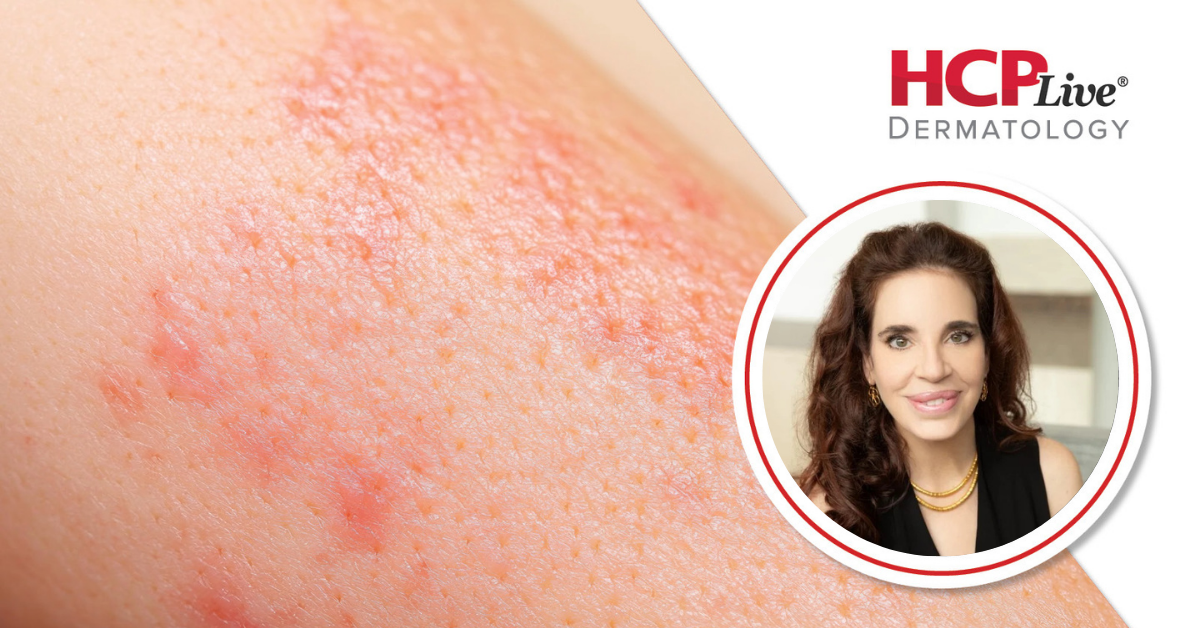Health
Topical Steroids and Innovations in Dermatology Discussed at SDPA

At the recent Society of Dermatology Physician Associates (SDPA) 2025 Fall Conference held in San Antonio, Texas, Cynthia Trickett, MPAS, PA-C, shared insights on the evolving landscape of dermatology. Trickett, who is a practicing physician assistant with North Dallas Dermatology Associates, discussed the importance of collaboration among dermatologists, physician assistants (PAs), and nurse practitioners (NPs), as well as emerging treatments for skin conditions.
During the conference, Trickett emphasized the significance of industry engagement. “I have been so lucky to spend a lot of this conference engaging with industry, and it’s nice to see the shift in how our industry really wants to partner with us,” she noted. This year marked a prominent focus on new-to-practice physician assistants, showcasing a commitment to education and support within the field.
New Developments in Psoriasis Treatment
Trickett highlighted notable advancements in treating psoriatic diseases, referencing recent data that indicate improved clearance rates for skin conditions. “We’re getting even better at achieving higher clearance rates in skin and setting new benchmarks for what we consider acceptable treatment for psoriatic arthritis,” she explained. This progress is not only beneficial for improving patient outcomes but also reflects a growing understanding of effective therapeutic strategies.
The introduction of new oral medications and advanced topical treatments is generating excitement in the dermatological community. Trickett pointed out the importance of these developments, stating, “These are exciting times.” She specifically mentioned the evolving perspectives on topical steroids, which have traditionally been a mainstay in managing chronic inflammatory diseases.
Shifting Perspectives on Topical Steroid Use
Trickett remarked on the changing approach to topical steroids, asserting that the long-term use of these medications is not the optimal strategy for treating chronic conditions. “There’s been a shift in dogma in using topical steroids, and that’s a good thing for our patients,” she said. She emphasized the potential side effects associated with prolonged steroid use, noting that adverse events can sometimes be irreversible.
The conversation also touched upon topical steroid withdrawal (TSW) and its implications. Trickett acknowledged that while TSW is a valid concern, it is essential to maintain a balanced perspective. “The right answer is probably somewhere in the middle,” she stated, suggesting that healthcare providers need to be vigilant about patients’ overall use of steroids, including those obtained from various sources, such as eye drops and over-the-counter creams.
In discussing topical JAK inhibitors, Trickett expressed optimism about their role in treating conditions like atopic dermatitis. “It’s nice that we’re getting the word out about steroid stewardship,” she commented, advocating for a more responsible approach to managing long-term treatments.
The insights shared by Trickett during the SDPA conference underscore the dynamic nature of dermatological practice and the need for ongoing education and collaboration among healthcare providers. As the role of PAs and NPs continues to expand within dermatology, the focus on innovative treatments and patient-centered care will likely shape the future of the field.
Overall, the 2025 SDPA Fall Conference served as a platform for meaningful discussions about the future of dermatological care, highlighting the critical importance of collaboration and continued professional development in improving patient outcomes.
-

 Top Stories2 weeks ago
Top Stories2 weeks agoMarc Buoniconti’s Legacy: 40 Years Later, Lives Transformed
-

 Health2 weeks ago
Health2 weeks agoInnovative Surgery Restores Confidence for Breast Cancer Patients
-

 Sports4 weeks ago
Sports4 weeks agoSteve Kerr Supports Jonathan Kuminga After Ejection in Preseason Game
-

 Science4 weeks ago
Science4 weeks agoChicago’s Viral ‘Rat Hole’ Likely Created by Squirrel, Study Reveals
-

 Politics4 weeks ago
Politics4 weeks agoDallin H. Oaks Assumes Leadership of Latter-day Saints Church
-

 Entertainment4 weeks ago
Entertainment4 weeks agoZoe Saldana Advocates for James Cameron’s Avatar Documentary
-

 Business4 weeks ago
Business4 weeks agoTyler Technologies Set to Reveal Q3 2025 Earnings on October 22
-

 Lifestyle4 weeks ago
Lifestyle4 weeks agoKelsea Ballerini Launches ‘Burn the Baggage’ Candle with Ranger Station
-

 Business3 weeks ago
Business3 weeks agoZacks Research Downgrades Equinox Gold to Strong Sell Rating
-

 Health2 weeks ago
Health2 weeks ago13-Year-Old Hospitalized After Swallowing 100 Magnets
-

 Top Stories2 weeks ago
Top Stories2 weeks agoBOYNEXTDOOR’s Jaehyun Faces Backlash Amid BTS-TWICE Controversy
-

 Lifestyle4 weeks ago
Lifestyle4 weeks agoDua Lipa Celebrates Passing GCSE Spanish During World Tour









